Resource Library
 Topic Briefs
Topic Briefs Topic Briefs
Topic BriefsSingle-use foodware items, such as plastic and paper cups, plates, and utensils, have a short lifespan but a long-lasting negative impact on human health and the environment. Additionally, most of these single-use foodware items are neither readily recyclable nor compostable, and contaminate recycling and composting programs.
Read More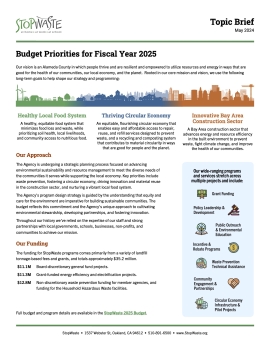 Topic Briefs
Topic BriefsThis provides an overview of the StopWaste Budget for FY 2025. It outlines the agency's strategic priorities and funding allocation for the coming year, which focuses on advancing environmental sustainability, fostering a circular economy, driving innovation in construction, and nurturing a local food system through various programs, partnerships, and community engagement.
Read More Topic Briefs
Topic Briefs Topic Briefs
Topic Briefs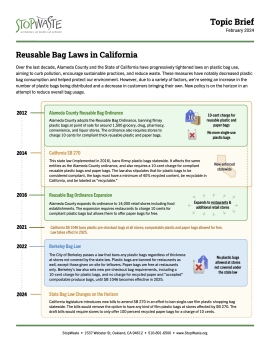 Topic Briefs
Topic BriefsOver the last decade, Alameda County and the State of California have progressively tightened laws on plastic bag use, aiming to curb pollution, encourage sustainable practices, and reduce waste. These measures have notably decreased plastic bag consumption and helped protect our environment.
Read More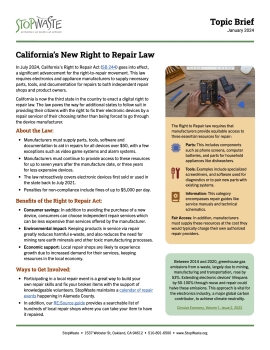 Topic Briefs
Topic Briefs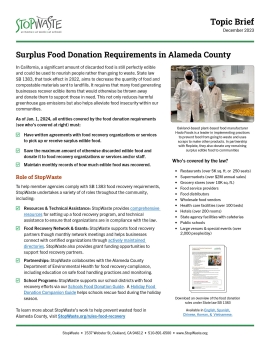 Topic Briefs
Topic Briefs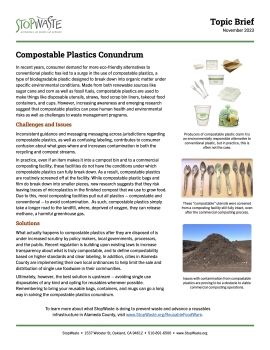 Topic Briefs
Topic Briefs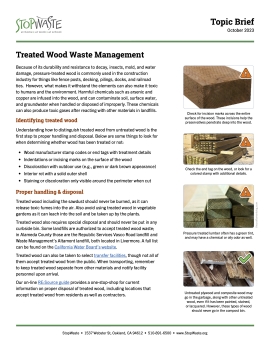 Topic Briefs
Topic BriefsBecause of its durability and resistance to decay, insects, mold, and water damage, pressure-treated wood is commonly used in the construction industry for things like fence posts, decking, pilings, docks, and railroad ties. However, what makes it withstand the elements can also make it toxic to humans and the environment.
Read More